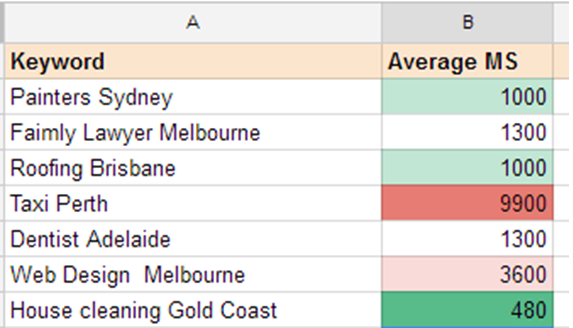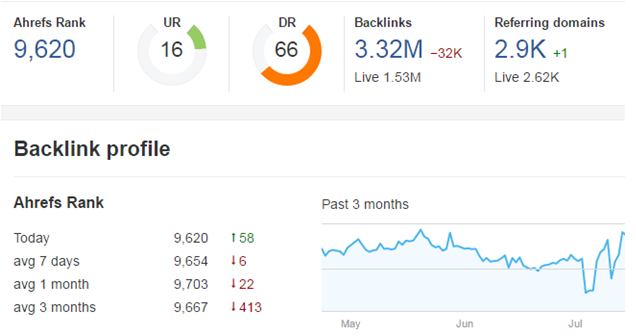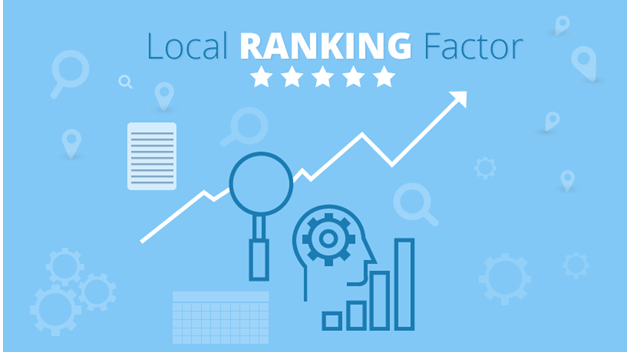During 2010, when I first stepped inside the SEO space, getting a website ranked wasn’t this tough. It was the time when automated software like GSA and black hat techniques was at its most effective reign.
But, the sophisticated head behind Google’s algorithm has evolved with time. And the guys that exploited the loophole of Big G’s algo had to take soft corner. Although the ranking today like Old SEO still relies heavily on Backlinks, the process of obtaining optimum results has slightly changed.
The evolution of semantic search and rank brain has flagged positivity toward Google’s User Experience drive. But, the question that embraces most SEOs is how does Google evaluate a website?
Today, I will try to clear few black clouds above the head of local SEOs with one of my recent test.
So here is the deal:
I took 100 local keywords and took note on the factors that may have influenced the first page rankings. So, if you are a Local SEO, this post is for you.

Note: This test doesn’t include heavy data pack, so don’t consider this test as the conclusive theory. For larger data set answer, please refer to backlinko’s search engine ranking post.
According to my findings here is the list of factors that has heavy influence on higher rankings:
Backlinks has high Impact Percentage when it comes to Page 1 rankings
This shouldn’t be anything new for the guys who have been following SEO for a while. Backlinks is and will always be the most crucial factor for ranking a website. According to my findings, the website having significant amount of Backlinks are ranked top on Google. Fascinating thing about local website is that the old rules of Backlinks i.e. directory submission, blog comments, and Web 2.0 are still legit and helping the website to rank well.

However, the more competitive a keyword gets, the website with links from authoritative/geographically relevant websites gets more love from Google.
Google Trusts Old Domain
Have you heard people saying, you should listen to your elders because they know better than you?? Well, looks like Google too loves its elder children. When I took top 10 highly competitive keywords with good amount referring domains, the one thing that stands out for me was the domain age.
8 out of 10 domains had an age of more than 7 years. In the less competitive section, other factors had more grip on rankings than just the age factor. However, Google doesn’t seem to rank sites that are less than 1 year old. This is where sandbox effect applies
Exact Match Anchor Text and Partial match has strong correlation
I had to admit this part but the truth is there are loopholes in Google’s algorithm. With the introduction of penguin, SEOs were afraid to build anchor text that targeted their exact keywords. But still it looks like exact match anchor text and smart partial match tagging will get you raked any way.
In fact look at one of the highly competitive keywords anchor text ratio. It is destroyed completely with EMA. Even the average median is more than 8% which is a lot considering the fact that Google is strict toward EMA with more than 2%.
Although I believe this will all drop down after penguin 4.0 is released. But the thing is it’s heavily spammed and it is working. However, I wouldn’t recommend you to walk this path anyway.
PMD is still ruling SERPs even after Google updates
In late 2012, we witness an update that states to kill the potential ranking factor of exact match domains (EMD). The thing was simple: Google made that updates because they knew that EMD was one of the loopholes of the big G which business owners had utilised to rank their websites quickly. The only problem with this is that it is not eradicated completely.
And, savvy SEOs seem to use partial match domain (PMD) to good effect. For example if your keyword is solar panels Sydney, domain with solar or solar panels has great impact on ranking high. Although, Backlinks have the strongest correlation with higher ranking, PMD has its unique place on search rankings especially when screws of competition aren’t that tight.
Local Citations and Directories are important in Local SEO
Undoubtedly, citations are vital part of any local SEO campaign. But when I say directories are not dead; I find people staring at me a lot. But, my test shows that directories and local citations are equally required to get your website to the top.
Over 50% of search results were highly influenced with the amount of directories and citations presented in domain itself. There is an equal chance that many SEOs may have PBN (private blog network) hidden. But, the point is Google considers local citations and directories equally important than any guest post links. And, if you have contextual links followed with citations and directories, you will genuinely rank higher than your counterparts.
This post here from white spark has decent amount of citation sources where you can get your website a citation.
Topical Relevancy and On-Page Content does Matter
With Google’s RankBrain and Hummingbird, the search landscape is shifting toward user experience. And, the relevancy of content and on page value is one way of Google’s AI to understand the quality of page.
What I have found is with proper structure of on page, you can still rank without too many Backlinks if the competition isn’t that high. For example: If you have a PMD and a great on page content, you are most likely to rank with sheer power of domain name and on page activity. However, this isn’t always the case because you will find domain with Backlinks. After all, every business has one SEO handling the task for them.
One interesting thing that popped up in the test was the use of topical relevant content. Although for competitive keywords, domain is the first one to come up in SERPs, there is always few extra juice of topical relevant content that’s providing the additional juice. For example: if xyz.com is ranking for keyword roofing Hobart, there will be a lot of content around the keyword roofing Hobart providing the additional juice.
Factors that didn’t had higher Impact like I thought it would
The Ultimate Guide to Factors That Don’t Affect Search Rankings
Schema doesn’t seem to have to greater impact like expected
Although Google seems to shift its focus more on semantic search, it looks like there are other factors that are more dominant than schema itself. I saw many first pages ranking that uses default Yoast SEO schema that doesn’t has much value. Or, use old traditional html website that doesn’t utilise schema at all. However, more sophisticated niche like tech does utilise schema, but the impact is much minimal.
Does https really matter?
Don’t get me wrong here. I love to add https as a security bonus for my website. But does it really matter when it comes to local SEO?? Because my results proves that https has minimum value on local business rankings. Let’s be realistic, https is required to add a socket of confidentiality on your data and keep it safe from intruders. However, in local business, there is low chance of making online transaction. Most of the conversion occurs with online quotes or bookings. Then, why would it really matter.
Conclusion:
These 6 factors look to have most positive impact on rankings. I won’t say this is conclusive because the data set used was rather small. I used tools like ahrefs, majestic and Moz, but anyone in SEO field knows that their crawlers aren’t as strong as Google bot. If there is something that I missed, let me know on the comments below.
